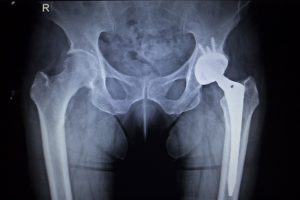Johnson & Johnson and its subsidiary company, DePuy Orthopaedics, have been ordered by a Texas jury to pay six plaintiffs more than $1 billion in damages. According to a jury, both companies did not warn consumers about risks involved with using Pinnacle hip implants. Jurors also concluded both companies marketed Pinnacle hip replacements as safer and more durable than other alternatives.
Johnson & Johnson and DePuy face an additional 8,000 lawsuits over its Pinnacle hip implant replacements. The cases have been consolidated via multidistrict litigation (MDL) in Texas courts.
This is not the first time Johnson & Johnson and DePuy have been sued for injuries involving hip implants. The companies faced lawsuits over the ASR XL hip replacement system. Like the Pinnacle hip implants, ASR models also used metal-on-metal parts. Johnson & Johnson spent $4 billion settling many of the lawsuits involving ASR implants.
Why are Pinnacle Hip Implants Being Called Dangerous?
Pinnacle hip replacements use metal-on-metal parts. When these parts rub together, they can shed metal into a person’s bloodstream. This puts people at greater risk for developing adverse health conditions like metallosis (metal poisoning).
People who develop metaollosis can suffer tissue, bone and nervous system damage. In addition, people may be at risk for cardiomyopathy (and heart failure), depression, cognitive impairment, infections and thyroid problems. Metal hip implants can break bones, cause localized pain, and create difficulties walking. These health problems often require users of metal-on-metal hip replacements to undergo expensive and potentially harmful revision surgeries.
The six plaintiffs involved in this most recent case suffered injuries such as bone erosion and tissue death. All six plaintiffs had to undergo revision surgeries to repair the damage.
The New Jersey personal injury attorneys at Keefe Law Firm can help individuals and families harmed by negligent medical device manufacturers.
